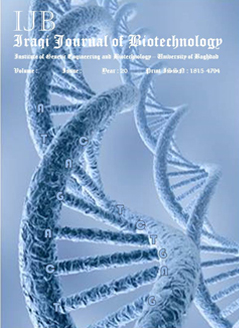Toxicity effects of aflatoxin B1 on growth indices and histopathological alteration in Cyprinus carpio
Abstract
Aflatoxin B1 (AFB1) is a common contaminant of foods, the safety characteristics of feed used in fish aquaculture systems are an essential tool to assure the productivity of those animal exploitations. The aim of this study was conducted to evaluate the fungi contamination in 53 samples, which were randomly collected from private fish farms in Iraq. In addition, investigate the effects of aflatoxin B1 contamination in feeds on growth indices, total protein, serum albumin in blood, liver histopathology, as well as the AFB1 residues in the fish muscle, was also examined. To evaluate adverse effects of AFB1 toxicity on health status of the Common carp (Cyprinus carpio). Fish were randomly distributed into 15 polystyrene tank, within five experimental groups; (1) control fed with normal diet without solvent and AFB1, (2) positive control received feed with only solvent, and (3-5) fed on diets containing 0.5, 1 and 2 mg /kg of AFB1, respectively for 12 weeks. Growth indices, total weight gain (TWG) and average daily gain (ADG) were assessed; blood samples were collected to analyze serum total protein (TP) and serum albumin (SA). The toxin residues in the musculature and histopathological alteration in liver were also investigated. Molds were found in 31 samples (58.5%). Aspergillus flavus was the most frequent, found in all positive samples. Results indicated that AFB1 has a negative effect on C. carpio weight gain, average daily gain and decreased in serum TP, SA, as well as liver histopathology of the infected fish, indicated cloudy swelling of hepatocytes, cellular hypertrophy, the formation of vacuoles in the cytoplasm, and necrosis of liver parenchyma. Further, the AFB1 residues were detected in the musculature with high level only in fish fed 2 mg AFB1/kg for 12 weeks. Overall, the results indicate that feeding of common carp with diets contaminated with AFB1, even in low concentrations (≤ 2 mg/ kg feed) can cause decreased in growth indices, histopathological damages and disturb their physiological balance.


